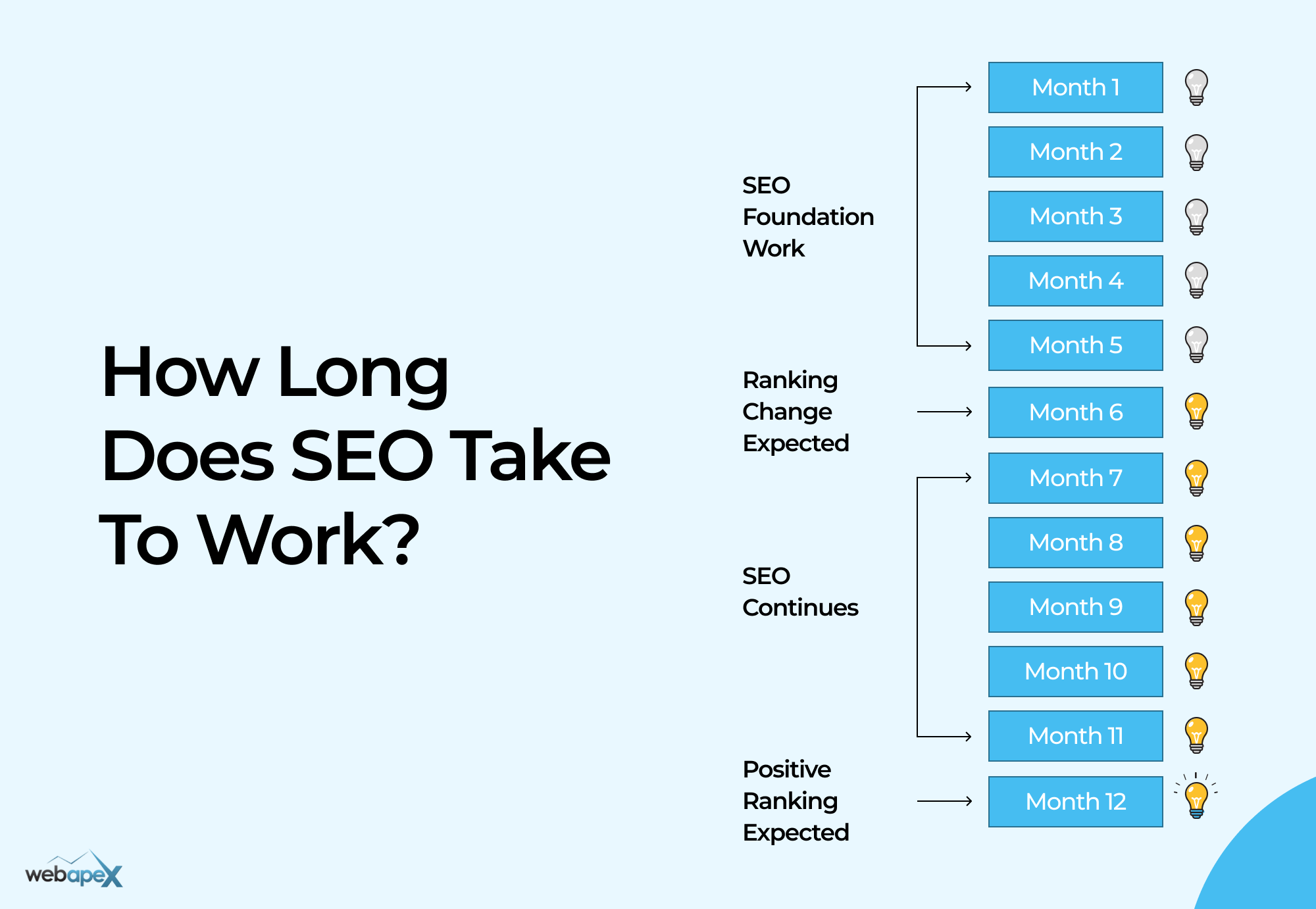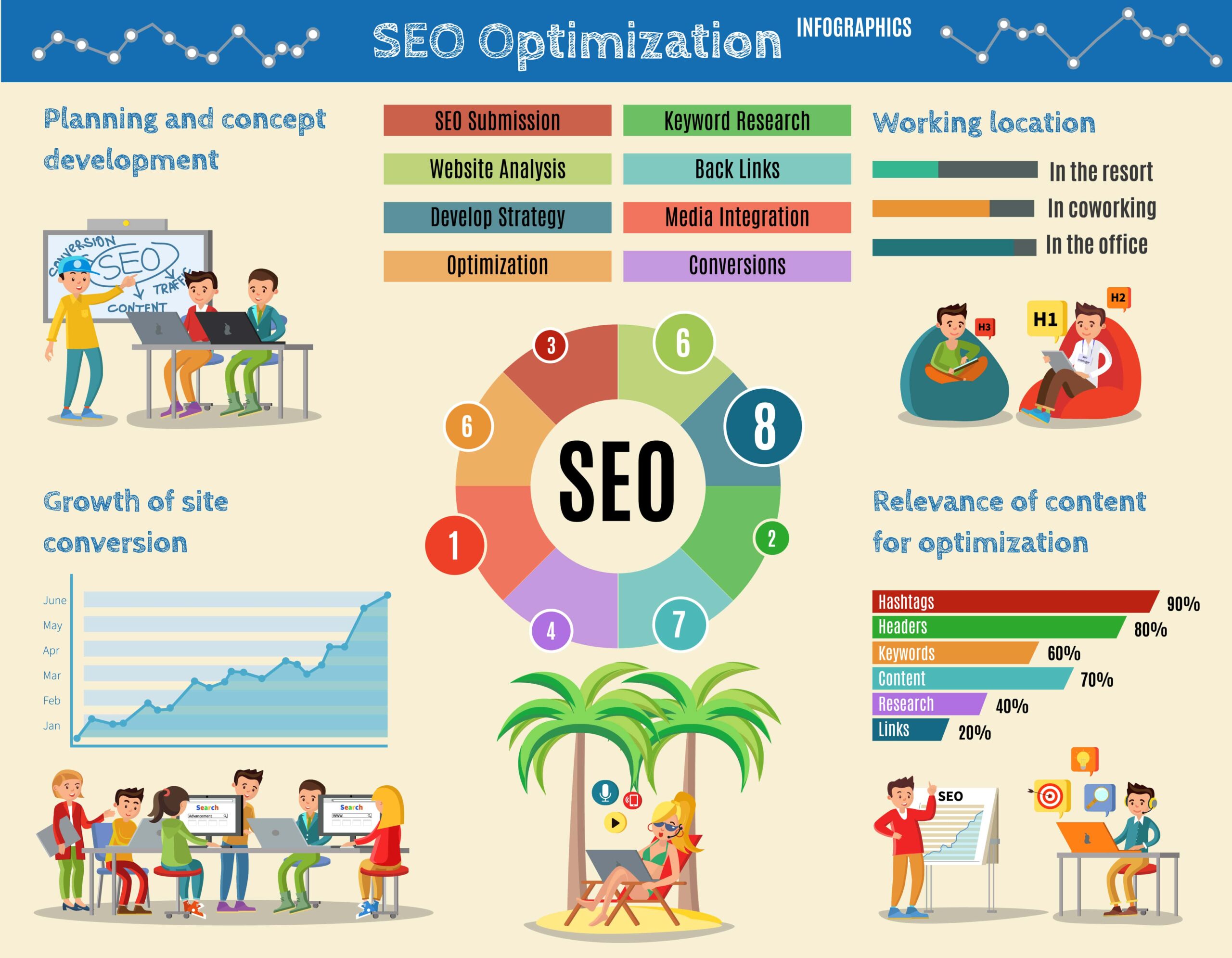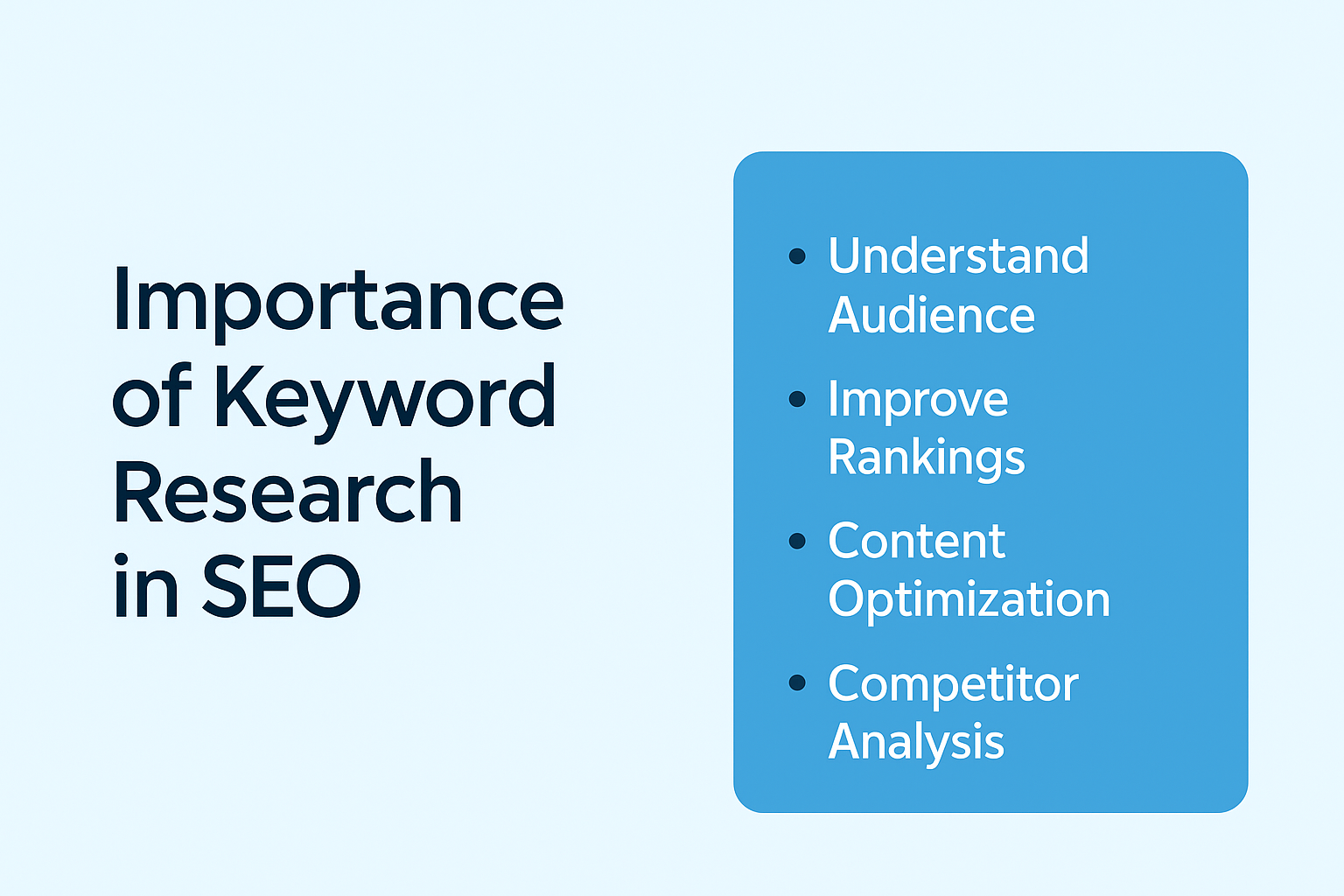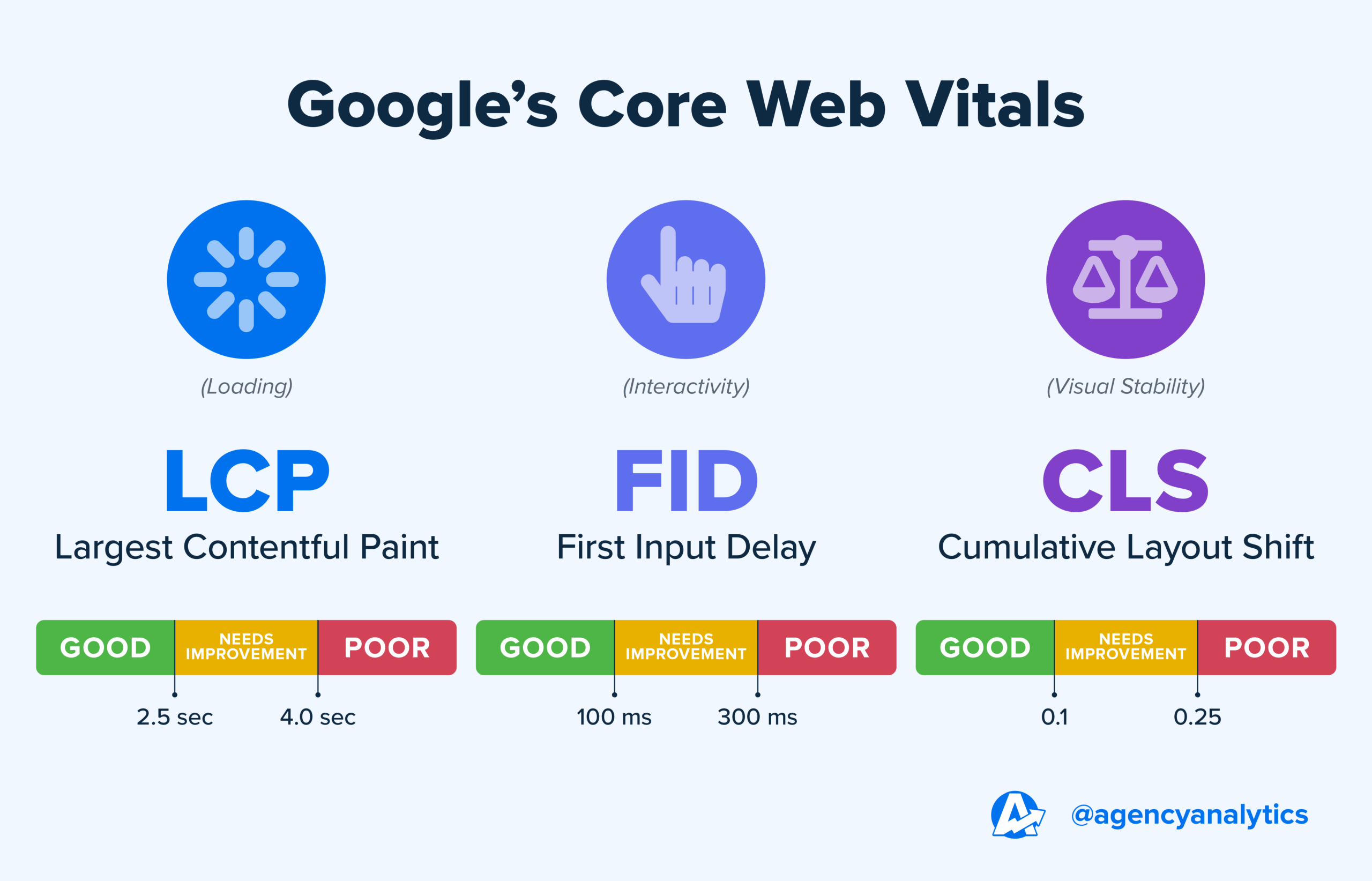
How Long Does It Take to See Results from SEO Work in 2025?
How Long Does It Take to See Results from SEO Work in 2025?
For anyone who works on their website or runs a business online, seeing results from SEO efforts can feel a bit like waiting for kettle to boil: you know it’ll happen, but you’re never sure exactly when. SEO promises growth, visibility, and a better return for your efforts. But it operates on its own clock. There’s no precise answer – but there are patterns, best-case timings, and common pitfalls that can help set expectations for what’s ahead.
How Long Does It Take to See Results from SEO Work?
Most websites begin to see measurable SEO results within 3 to 6 months. However, this timeframe can vary significantly based on several key factors:
- Website Age and Authority: Newer websites often take longer to gain traction, while established sites with existing authority may see improvements sooner.
- Competition: Highly competitive industries or keywords typically require more time and sustained effort to achieve noticeable results.
- Resources and Consistency: The amount of time, expertise, and budget dedicated to SEO directly impacts how quickly progress is made. Consistent, high-quality work accelerates outcomes.
- Technical Health: Sites that start with technical issues—such as slow loading times, poor mobile usability, or crawl errors—may need extra time to resolve foundational problems before seeing ranking improvements.
- Content Quality and Relevance: Publishing valuable, well-optimised content that aligns with user intent can speed up the process, while thin or outdated content can delay results.
- Backlink Profile: Earning authoritative backlinks helps build trust with search engines, often leading to faster improvements in rankings and traffic.
While some changes—like technical fixes—can yield quick wins, sustainable SEO growth is a long-term investment. Patience, persistence, and a strategic approach are essential for achieving and maintaining strong results.

Image Source: webapex
The Many Moving Parts of SEO
To appreciate why the road to SEO success isn’t immediate, it helps to know what contributes to those shifting search rankings. Search engines like Google rely on hundreds of ranking factors, from technical set-up and high-quality content to backlinks and site speed. SEO isn’t a single tick-box task; it’s ongoing work involving strategy, execution, and ongoing updates.
Key elements involved in SEO include:
- Technical SEO: Site structure, crawl efficiency, mobile-friendliness, page speeds
- Content Quality: Originality, intent-match, authority, keyword targeting
- Backlinks: Natural, reputable sites linking to your pages
- User Signals: Click-through rates, page engagement, bounce rates
- Regular Updates: Keeping information and technology up-to-date
Every website brings its unique mix of these factors. The competitive landscape and your starting point greatly influence the time to see improvements.

Typical Timeline to Observe SEO Results
Let’s break down how the progress might look in real terms. Certain changes can show results in weeks, while others take several months to bear fruit. Here’s a rough guide:
| SEO Activity | Earliest Impact | Typical Impact Period | Comments |
|---|---|---|---|
| Technical Fixes & Site Cleanup | 2-4 weeks | 1-2 months | Search engines re-crawl site quickly |
| Content Optimisation/Refresh | 4-8 weeks | 2-3 months | Faster for smaller updates |
| Publishing New Content | 8-12 weeks | 3-6 months | Depends on competitiveness |
| Building High-Quality Backlinks | 2-4 months | 4-12 months | White-hat link acquisition is slow |
| Authority & Trust Building | 4-6 months | 12+ months | Grows slowly with consistency |
This table isn’t a guarantee, but it helps form expectations. Sometimes you’ll see jumps in traffic and rankings earlier, especially with technical fixes or optimisations. Larger swings from content and link-building build cumulatively.
The Importance of Resources in SEO Results
The speed and effectiveness of your SEO results are closely tied to the resources you invest. Time, budget, and expertise each play a critical role in determining how quickly you’ll see meaningful progress.
- Time: SEO is not a set-and-forget activity. Consistent effort over months is required to research, implement, monitor, and refine your strategy. The more time you can dedicate—whether through your own team or external partners—the faster you can address issues and capitalise on opportunities.
- Budget: A larger budget allows you to invest in premium SEO tools, commission high-quality content, and potentially run parallel campaigns (such as technical SEO, content marketing, and link building) that accelerate results. Limited budgets may mean slower progress, as tasks are prioritised or spread out over a longer period.
- Expertise: SEO is a complex and evolving field. Having access to experienced professionals—either in-house or through an agency—can dramatically reduce the learning curve, avoid costly mistakes, and ensure best practices are followed from the outset. Experts can quickly identify and resolve technical issues, uncover valuable keyword opportunities, and craft strategies tailored to your goals.
- Tools and Technology: Investing in advanced SEO tools enables deeper analysis, better tracking, and more efficient implementation. Tools for keyword research, competitor analysis, site audits, and reporting can streamline your workflow and reveal insights that manual methods might miss.
Allocating more resources to your SEO efforts doesn’t just speed up the process—it also improves the quality and sustainability of your results. Whether you’re scaling up your internal team, partnering with specialists, or investing in technology, a well-resourced SEO campaign is far more likely to deliver lasting, measurable growth.
The Role of Keywords in Achieving SEO Results
Keyword research and targeting are foundational to any successful SEO strategy. The keywords you choose—and how effectively you optimise for them—directly influence how quickly you’ll see results.
Why Keywords Matter: Search engines use keywords to understand the relevance of your content to user queries. Targeting the right keywords ensures your pages appear for searches that matter to your business, driving qualified traffic and improving your chances of ranking sooner.
Choosing the Right Keywords:
- Balance Competition and Opportunity: Highly competitive keywords often take longer to rank for, especially if your site is new or lacks authority. Targeting a mix of high-volume, competitive terms and lower-competition, long-tail keywords can yield both quick wins and long-term growth.
- Focus on Search Intent: Select keywords that align with what your ideal customers are actually searching for. Consider informational, navigational, and transactional intent to capture users at different stages of the buying journey.
- Use Data-Driven Tools: Leverage keyword research tools to assess search volume, competition, and related terms. Tools like Google Keyword Planner, Ahrefs, or SEMrush can help you uncover valuable opportunities.
Optimising for Keywords:
- On-Page Optimisation: Incorporate your target keywords naturally into titles, headings, meta descriptions, and throughout your content. Avoid keyword stuffing—focus on readability and user experience.
- Content Relevance: Create comprehensive, high-quality content that fully addresses the topic behind each keyword. This increases your chances of ranking and keeps users engaged.
- Internal Linking: Use keyword-rich anchor text to link related pages within your site, helping search engines understand your content structure and boosting the authority of key pages.
Tracking and Adjusting:
- Monitor Rankings: Regularly track your keyword rankings to measure progress and identify areas for improvement.
- Analyse Performance: Use analytics to see which keywords are driving traffic and conversions, then refine your strategy based on what’s working.
By carefully selecting and optimising for the right keywords, you can accelerate your SEO results and build a sustainable foundation for ongoing growth.

Understanding Search Intent and Its Impact on SEO Success
Search intent—also known as user intent—is the underlying reason behind a user’s search query. Understanding what users are truly looking for when they type a query into a search engine is fundamental to creating content that ranks well and delivers real value.
Why Search Intent Matters: Search engines like Google are increasingly focused on delivering results that best match the user’s intent, not just the keywords they use. If your content aligns closely with what users want—whether they’re seeking information, looking to make a purchase, or comparing options—your chances of ranking higher and engaging visitors increase dramatically.
Types of Search Intent:
- Informational: The user wants to learn something (e.g., “how long does SEO take?”).
- Navigational: The user is looking for a specific website or page (e.g., “Google Search Console login”).
- Transactional: The user intends to make a purchase or complete an action (e.g., “buy SEO tools”).
- Commercial Investigation: The user is comparing products or services before making a decision (e.g., “best SEO agency in New Zealand”).
How to Align Content with Search Intent:
- Analyse Top-Ranking Pages: Review the content that currently ranks for your target keywords to understand what search engines believe best satisfies user intent.
- Match Content Format and Depth: If users expect a detailed guide, provide comprehensive information. If they want a quick answer, deliver concise, clear responses.
- Use Clear Structure and Language: Make it easy for users to find the information they need by using headings, bullet points, and straightforward language.
- Address Related Questions: Anticipate follow-up queries and address them within your content to keep users engaged and on your site longer.
By consistently aligning your content with search intent, you not only improve your chances of ranking higher but also enhance user satisfaction and engagement. This approach accelerates SEO results and builds lasting trust with your audience.
Building a Strong Backlink Profile for Faster SEO Results
A robust backlink profile is one of the most influential factors in accelerating SEO success. Backlinks—links from other reputable websites to your own—signal trust and authority to search engines, helping your pages rank higher and faster. For a deeper dive into what makes a strong backlink profile and why it matters, check out this comprehensive guide: What is a Backlink Profile and Why Does It Matter?
Why Backlinks Matter: Search engines view backlinks as endorsements of your content’s quality and relevance. The more high-quality backlinks you earn, the more likely your site is to be seen as authoritative, which can significantly shorten the time it takes to achieve top rankings.
Tips for Earning Quality Backlinks:
- Create Valuable Content: Publish original research, in-depth guides, or unique resources that others naturally want to reference and share.
- Guest Posting: Contribute articles to reputable industry websites, including a relevant link back to your site.
- Build Relationships: Network with influencers, journalists, and other website owners in your niche to increase opportunities for organic backlinks.
- Leverage Digital PR: Promote your content through press releases, social media, and outreach campaigns to attract attention from authoritative sources.
- Resource Pages and Directories: Submit your site to relevant, high-quality directories and resource lists.
Monitoring and Maintaining Link Health:
- Regular Audits: Use SEO tools to monitor your backlink profile, identifying new links and spotting potentially harmful or spammy backlinks.
- Disavow Toxic Links: If you discover low-quality or suspicious backlinks, use Google’s Disavow Tool to prevent them from negatively impacting your rankings.
- Track Competitors: Analyse your competitors’ backlink profiles to uncover new opportunities and stay ahead in your industry.
A strong, healthy backlink profile not only boosts your site’s authority but also accelerates the timeline for seeing meaningful SEO results. Consistent link-building efforts, combined with vigilant monitoring, are essential for long-term search success.

Website Performance: A Critical Factor in SEO Results
Website performance—encompassing speed, uptime, and responsiveness—plays a pivotal role in how quickly and effectively your SEO efforts deliver results. Search engines prioritise sites that offer a seamless user experience, and performance issues can directly hinder your rankings and user engagement.
Why Performance Matters: Fast-loading, reliable websites keep visitors engaged and reduce bounce rates. Google and other search engines use performance metrics as ranking factors, meaning slow or unreliable sites are less likely to appear at the top of search results. Even a one-second delay in page load time can significantly impact both user satisfaction and conversion rates.
Key Performance Factors:
- Speed: Pages should load quickly on all devices, especially mobile. Slow sites frustrate users and are penalised in search rankings.
- Uptime: Consistent availability is essential. Frequent downtime can lead to lost traffic, reduced trust, and lower rankings.
- Responsiveness: Your site must adapt smoothly to different screen sizes and devices, ensuring a positive experience for every visitor.
Actionable Tips to Improve Website Performance:
- Optimise Images: Compress and resize images to reduce load times without sacrificing quality.
- Leverage Caching: Use browser and server-side caching to deliver content faster to repeat visitors.
- Minimise Code: Reduce unnecessary scripts, CSS, and plugins to streamline your site’s codebase.
- Choose Reliable Hosting: Invest in a reputable hosting provider with strong uptime guarantees and scalable resources.
- Enable Content Delivery Networks (CDNs): Distribute your content across global servers to speed up delivery for users worldwide. We highly suggest that you use Cloudflare
- Monitor Regularly: Use tools like Google PageSpeed Insights, GTmetrix, or Lighthouse to identify and address performance bottlenecks.
Prioritising website performance not only accelerates your SEO results but also enhances user experience, increases engagement, and boosts conversion rates. Consistent optimisation ensures your site remains competitive in both search rankings and customer satisfaction.

Image Source: AgencyAnalytics
Early Wins That Make a Difference
It’s not all waiting and patience. Certain tactics, especially technical fixes, can have a more immediate effect. If your website previously suffered from a major technical issue, addressing it can push you into Google’s good graces fairly quickly.
Here are some examples where improvements can be quite fast:
- Fixing crawl or indexation issues: If pages weren’t being indexed, resolving this can boost visibility within weeks.
- Improving site speed: Users stay longer, bounce less, and Google rewards with better rankings.
- Tidying up duplicate content: Cleaning up can make a difference within a short period.
These aren’t always the norm, but they’re a nice reminder that not all SEO is slow burn.
The Slow Burn of Authority and Links
Content and inbound links are the real driving forces in shifting your position in the search results. Both require both time and effort.
Building quality backlinks is a manual process; it depends on outreach, relationships, and providing material worth linking to. Even after you land a couple of strong backlinks, Google’s bots take some time to discover and assimilate those links into your domain’s reputation.
Likewise, new content takes time to climb the ranks. Google wants to test it out: give it a try with small groups of users, see how they interact, and then slowly expand its reach as confidence grows. This can be particularly true for more competitive search topics or “Your Money or Your Life” queries, where user safety and accuracy matter.
Why a One-Size-Fits-All Estimate Doesn’t Work
No single rule applies for all businesses or websites. Some sites start from zero, while others already have some history, good content, or an existing link profile. A brand-new site usually takes longer to establish trust and authority than a respected one with a decade of solid content.
A few factors that could impact your SEO timeline:
- Competition: Higher competition means it takes more work and time to outrank established players.
- Resource investment: Sites that actively produce quality content and gain links steadily see improved results faster.
- Crawl frequency: High-authority sites tend to get noticed by Google’s crawlers more frequently, so changes are reflected quicker.
- Niche specifics: Some industries, such as local services, may see changes more quickly due to less competition.
- Penalties and setbacks: Recovering from a Google penalty takes much longer than regular incremental work.
Measuring Progress Beyond Rankings
Rankings are one metric, but not the only signal to track. SEO success can be measured in a range of ways, reflecting improvements that ultimately contribute to more leads, sales, or brand awareness.
Consider watching these metrics:
- Organic traffic: Are more people finding you via search?
- Click-through rate (CTR): Are your titles and descriptions enticing users?
- Impressions: Is your site being shown more often in search results?
- Conversions: Are visitors taking the actions you want?
- Indexed pages: Are more of your pages being discovered and included by Google?
Making changes and then monitoring this suite of indicators gives you a much clearer indication that your SEO efforts are on the right track, even when “big” results feel distant.
Patience and Consistency Pay Off
While there’s a natural desire for immediate improvement, real SEO gains tend to snowball over time. Consistency plays a huge role here. Regular publication of valuable content, continued technical audits, and ethical link-building deliver compounding returns.
It’s common to see only modest movement in the initial weeks or even months. Then, sometimes seemingly overnight, rankings climb, and traffic rises. It’s the result of accumulated, ongoing effort.
When Results Don’t Show
If several months have passed and you’re still waiting for positive movement, it can be a signal to review your tactics. Some reasons for stalling progress include:
- Targeting keywords that are too competitive
- Low-quality or unoptimised content
- Technical issues still lurking
- Spammy or weak backlinks
- Poor user experience on site
At this point, a fresh audit by an independent SEO agency or a new set of eyes may uncover missing opportunities or issues that have been overlooked.
Adaptability Matters
Sticking rigidly to an initial plan can slow you down. As you watch the data, be ready to adjust. If certain topics generate traffic faster, double down. If Google updates its rankings algorithm, make the needed shifts. Search is dynamic, and being flexible keeps you ahead.
A/B testing titles, refining meta descriptions, adjusting site structure, or targeting long-tail keywords are low-lifting ways to cause real changes without major site overhauls. This adaptable approach keeps momentum going without constantly starting from scratch.
Setting Expectations with Stakeholders
One of the challenges of working in SEO, especially in an agency or in-house marketing environment, is communicating timelines effectively to clients and management. SEO is an investment. Consistently explaining that it typically takes three to six months to see tangible results helps everyone stay patient.
A reasonable approach is to map out milestone targets:
- Weeks 1–4: Technical audits, strategy development, initial fixes
- Weeks 4–12: Content improvements, early signs of increased crawl rate, possibly some new rankings for easier keywords
- Weeks 12–24: Growing authority, improving rankings, more organic traffic, lead generation begins
Ensuring all parties are on the same page reduces frustration and helps secure the buy-in needed to stick with an SEO plan long enough for it to work.
Realistic Timelines: A Blend of Art and Science
There are formulas and guidelines, but part of the challenge with SEO is preparing for surprises. Sometimes results come sooner than expected; other times, competition or algorithm changes throw a spanner in the works.
Applying a solid strategy, monitoring key metrics, continually improving, and communicating proactively allow you to make the most of your SEO investment. Results follow a pattern of momentum: a little movement at the start, then steadier growth as you commit to doing things the proper way. While instant results remain rare, the payoff for patience and diligence is often well worth it.

